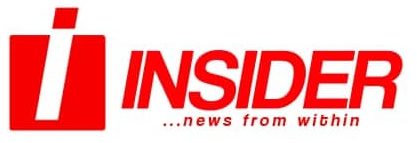By Shola Abayomi.
The Presidential Election Petition Tribunal sitting in Abuja, has delivered some rulings ahead of the final judgement on the petition challenging the victory of President Muhammadu Buhari at the 2019 presidential poll.
Below are highlights of some of the rulings:
1. The presidential election petition tribunal has ruled that President Muhammadu Buhari Buhari is not only qualified but eminently qualified to contest the presidential election.
2. The tribunal dismissed a motion filed by the Independent National Electoral Commission (INEC) alleging that Livy Uzoukwu, lead counsel of Atiku Abubakar of the Peoples Democratic Party (PDP), is not a legal practitioner.
The tribunal held that the claim is unfounded and that Uzoukwu was called to the Nigerian Bar, and was conferred on the title of senior advocate of Nigeria (SAN) in 1992.
3. The tribunal ruled that there is no need for Osinbajo to be joined in the matter since the vice-president “was nominated by the presidential candidate.” INEC had claimed that Prof. Osinbajo should have been joined in the suit.
4. The tribunal refused INEC’s request in another motion to strike out some of the documents and witnesses presented by the PDP and Atiku.
5. The tribunal upheld Atiku’s right to petition against Buhari’s victory. INEC had prayed the tribunal to dismiss Atiku’s petition claiming that he was not qualified to contest the election.
The tribunal maintained that the issue is not a pre-election matter.
6. The tribunal dismissed some paragraphs of the PDP and Atiku’s petitions accusing Buhari, the second respondent, and Osinbajo of using government funds to induce voters through the Trader-moni scheme.
The tribunal agreed with the submission of Buhari’s counsel that it has no jurisdiction over the matter and that the court lacks power to try those accused of using government funds for purposes they were not appropriated for.
7. The tribunal struck out parts of the PDP and Atiku’s petition accusing security agencies of rigging the election in favour of Buhari.
It affirmed the submission of INEC that the PDP and Atiku should have joined the security agencies in questions in the suit filed.
8. The tribunal ruled against the motion filed by Buhari, challenging Atiku’s argument on the non-use of the smart card reader and other electronic devices.
It stated that the use of card reader is a valid component of the electoral process.
9. The tribunal struck out the motion filed by the PDP and Atiku alleging abuse of court process, in relation to an application filed by the APC, the third respondent.
10. The tribunal ruled that there is no evidence INEC transmitted results of the presidential election electronically to any server.
It stated that the petitioners failed to prove the existence of an INEC server or that the electoral commission transmitted results electronically, adding that no law in place in Nigeria allows electronic transmission of results or the transmission of result using card reader.
“I have carefully examined Exhibit 28 (INEC Manual for Election) tendered by the petitioners, I did not see where there is provision for electronic transmission of result of election,” PEPC Presiding Justice, Justice Mohammed Garba said.
More details as they come…


